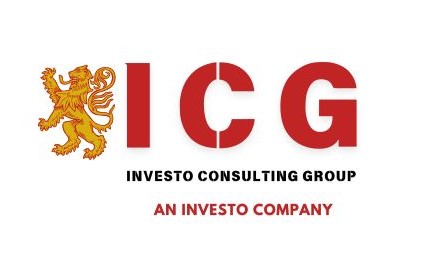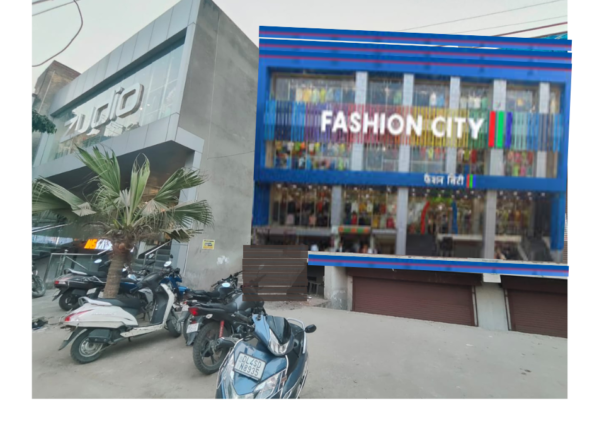Hey , you all know India is on the move, 140 Crore Indians are trying hard to make our country great, reaching to the top, but in vein its not easy for all the entrepreneurs. Despite the increasing popularity of online shopping, opening a physical retail store offers numerous advantages. Rather than hindering growth, eCommerce has elevated retail to new heights, introducing innovative ways for merchants to engage with, sell to, and serve consumers. Here are some key benefits of having a brick-and-mortar store:
Firstly, Opportunity
In this exploration, we examine how advancements and the increasing accessibility of sophisticated retail technology have enabled independent merchants to compete effectively with big-box retailers.
i. Advantages for Independent Merchants
- Hyper-Personalized Service: Independent merchants can offer highly personalized service, tailoring their offerings to meet the specific needs and preferences of their local clientele. This level of personal attention helps build strong customer relationships.
- Environmentally Sustainable Practices: Many independent retailers adopt eco-friendly practices, which resonate well with conscious consumers. By prioritizing sustainability, these merchants can attract a dedicated customer base that values ethical consumption.
- Community Integration: Independent merchants have the unique advantage of being deeply rooted in their communities. They can become local hubs, fostering a sense of belonging and loyalty among customers. Many Vishal Megamart Stores serve the community in Covid situation, it gave them a higher brand satisfaction.
ii. The Power of Personal Engagement
Throughout the history of business, it has been observed time and again that customers who interact with sales associates tend to spend more than those who do not. This phenomenon holds true even today. During my visit to Vishal Mega Mart stores in western India, I witnessed the same trend. By recommending a few colored formal shirts to a gentleman, we were able to increase the average merchandise in his basket, demonstrating how effective personalized service can be.
The value of personalized interactions is further highlighted by Rajesh Verma, according to the international report, brand Store in Dubai experienced a remarkable 170% increase in conversions when customers engaged with a sales associate. This underscores the significant impact that personalized service can have on sales performance.
In essence, these interactions not only enhance the shopping experience but also drive higher sales, making personalized customer service a vital component of retail success.
Overall, by leveraging advanced retail technology, offering personalized and sustainable services, and building strong community ties, independent merchants can thrive and compete with larger retailers. The personal touch provided by engaging sales associates can significantly boost customer satisfaction and sales, cementing the merchant’s role as a vital community hub. Physical stores provide unique opportunities for merchants to connect with customers on a personal level. They can offer exclusive in-store events, product launches, and personalized services that are not possible online. These in-person interactions help build stronger relationships with customers, fostering loyalty and repeat business.

Secondly, Build a Brand
Having a physical presence allows brands to create a tangible and immersive brand experience. Stores can be designed to reflect the brand’s identity, from the layout and decor to the ambiance and customer service. This helps in reinforcing brand recognition and establishing a distinct market presence. Additionally, a physical store can act as a powerful marketing tool, attracting foot traffic and increasing visibility within the community.
Thirdly, Better Customer Experience
Physical stores excel in providing a multi-sensory shopping experience. Customers can touch, feel, and try products before making a purchase, which enhances their confidence in the products. This immediate gratification of purchasing and taking items home right away is something online shopping cannot replicate. Moreover, well-trained staff can offer personalized assistance, answer queries, and provide recommendations, creating a more engaging and satisfying shopping experience. A physical store complements an online presence by offering a seamless omnichannel experience. Customers can browse and research products online, and then visit the store to make a final purchase or vice versa. Services like buy online, pick up in-store (BOPIS), and easy returns at physical locations enhance convenience, blending the best of both worlds.
Finding the Perfect Retail Space at Prime spot.
Once you’ve decided to open a physical retail store, finding the perfect location is your next critical step. This process can be time-consuming, but it’s crucial to ensure your chosen space meets all your criteria and fits within your budget. Here ICG(INVESTO Consulting Group) help to ease your process with our professional team. Here’s a detailed guide to help you find the ideal retail space:
1. Pinpoint Your Needs
Start by clearly defining what you need from your retail space. Consider the following factors:
- Size: How much space do you require for your products, displays, and storage?
- Foot Traffic: Do you need a location with high foot traffic, or is a quieter area suitable?
- Accessibility: Ensure the space is easily accessible for customers, including parking facilities if necessary.
- Budget: Determine your budget for rent and additional costs like utilities and maintenance.
2. Identify Your Ideal Neighborhoods
Research neighborhoods that align with your target market and business goals. Consider factors such as:
- Demographics: Choose an area where your target customers live or frequently visit.
- Competition: Analyze the presence of competitors and complementary businesses.
- Community: Look for communities that support local businesses and have a vibrant retail scene.
3. Find a Real Estate Broker
Engage a real estate broker with experience in commercial properties. A broker can:
- Offer Expertise: Provide insights into market trends and available properties.
- Save Time: Handle the legwork of finding and scheduling property viewings.
- Negotiate: Assist in negotiating lease terms and conditions.
4. Inspect Each Potential Retail Space
Visit each potential location to evaluate its suitability. Consider:
- Condition: Assess the overall condition of the property, including any required repairs or renovations.
- Layout: Ensure the layout meets your needs for display, storage, and customer flow.
- Utilities: Check the availability and condition of essential utilities like electricity, Power Back up, water, and HVAC.
5. Negotiate a Favorable Lease
Once you’ve found a suitable space, negotiate lease terms that work for you. Key points to discuss include:
- Rent: Ensure the rent aligns with your budget and consider negotiating for a lower rate or rent-free period.
- Lease Length: Choose a lease term that provides stability without overly committing long-term.
- Flexibility: Negotiate for flexibility in terms such as renewal options, subletting, and modifications.
Taking the time to find the perfect retail space is a vital investment in your business’s future success. Each step, from identifying your needs to negotiating the lease, plays a critical role in ensuring your retail store thrives in its new location.
Find a real estate broker– ICG (Investo Consulting Group) your Best Pick!
While finding a retail space on your own is an option, it’s not ideal, especially if you don’t have any past experience. We suggest hiring a commercial real estate broker with experience in the retail industry to help you find a great location within your budget, negotiate a favorable rate and lease terms with the landlords.
If you have a network of retail business owners you can turn to, ask them for recommendations. You can also look on the National Association for Realtors for qualified real estate agents. Worst case scenario? Visit stores that you admire and see if the owner can point you in the right direction.
Inspect Each Potential Retail Space
Once you and your real estate agent (ICG) have compiled a list of potential locations that fit your needs and budget, it’s crucial to inspect each space and carefully vet your options. Determine your must-haves, nice-to-haves, and deal-breakers. Here are some key factors to consider during each inspection:
Parking
- Necessity: Do you require parking facilities?
- Availability: Is there street parking, a nearby parking lot, or on-site parking available for your customers?
Visibility
- Neighborhood: Is the area well-known, up-and-coming, or somewhat isolated?
- Storefront: How visible is the retail space itself? Does it stand out and attract passers-by, or is it hidden away?
Condition
- Assessment: What is the current condition of the space?
- Renovations: Will you need to undertake major or minor renovations to make it suitable? Include these potential costs in your budget to see if the space remains a viable option.
On-Site Amenities
- Facilities: Are there essential amenities such as dressing rooms, bathrooms, back-of-house areas, offices, or other necessary facilities?
Merchandising Displays
- Equipment: Does the retail space come equipped with shelving and merchandising displays, or will you need to build and install them yourself?
Size
- Space: Is the space large enough to comfortably accommodate your inventory, employees, and customers?
- Layout: Do you have sufficient space for a fixed cash register, or should you consider saving space by investing in a mobile point-of-sale system?
Local Laws
- Regulations: Are there any local laws or regulations that might impact your operations, such as restrictions on business hours (e.g., no businesses can be open on Sundays)?
By carefully evaluating these factors during your inspections, you can ensure that the retail space you choose meets all your needs and supports your business goals effectively.
Negotiate a Favorable Lease
Before you sign any lease papers, it’s wise to consult your attorney who specializes in commercial real estate or can ask ICG professional for the same. Their expertise will help them review the lease, identify any red flags, and ensure that the deal aligns with your best interests. The faster you finalise, it’s better, because prime space rented out quickly.
If you don’t know any attorneys who specialize in commercial real estate, consider reaching out to other local business owners whom you admire and trust. Asking for referrals from people who have been in the same position is a good strategy. These referrals are a positive indication that the attorney you hire can provide the necessary assistance and guidance. Taking these steps can help you secure a lease that is favorable and supportive of your business goals.






